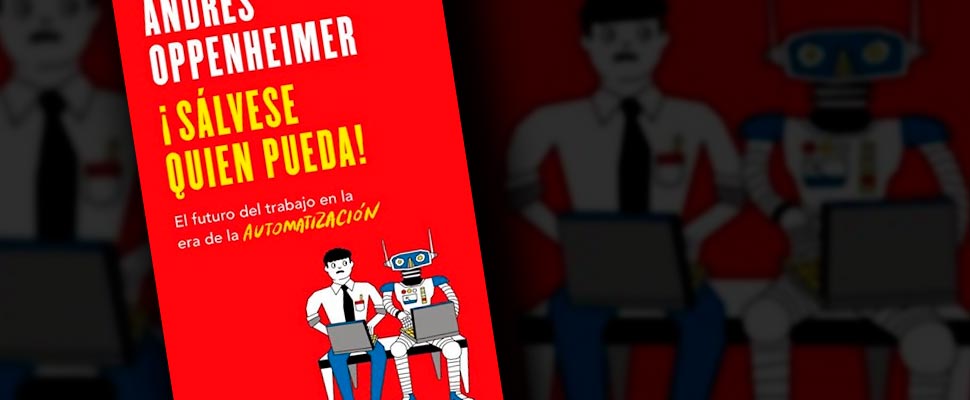“Sálvese quien pueda”, the book about the future of work
"Sálvese quien pueda" is the book that is showing that, even in a pandemic, the world of work is changing at a rapid pace

What you should know about the book ‘Save yourself who can’ by Andrés Oppenheimer. / Photo: andresoppenheimer.com
LatinAmerican Post | Ariel Cipolla
Escucha este artículo
Leer en español: “Sálvese quien pueda”, el libro de los trabajos del futuro
Can you imagine losing your job overnight? This may be the situation for thousands of workers, as companies are cutting expenses because they cannot keep up due to the health crisis, but also the economic crisis caused by the coronavirus. However, this book talks about other types of job replacements, an idea that is growing due to the pandemic.
As the Infobae website mentions, “job uncertainty” and increasing unemployment from coronavirus infections are leading companies to think more and more about the use of robots. Many of the manual tasks that some workers perform, specifically on factory land, could be automated, with the argument of avoiding human labor and contagion.
However… would this be beneficial for workers? In "Sálvese quien pueda", the Argentine journalist, Andrés Oppenheimer, seeks to understand a little about the future and also the present of many of the works that we currently think are immovable. Well, we are wrong, because, from his point of view, almost everything is replaceable.
"Sálvese quien pueda" and its relevance today
First, we can contextualize based on the present. The Nuevo Heraldo mentions that Andrés Oppenheimer believes that the future of Latin America is "uncertain", since he is not sure that the recovery in economic matters will be as rapid and great as many hope.
However, that's not the only problem. As reported by the Yahoo Finance media, the coronavirus could mean an acceleration in investment in robots to automate work. That may sound terrifying, but we'll see that, from the perspective of the book, this could also bring new opportunities.
Turning to the book review, we find ourselves in a real situation: technology accelerates at incredible steps and transforms everything on its way. Despite this, an uncertainty arises, which is to think about whether we will be able to create more jobs than we will progressively eliminate when robots are able to replace human labor.
Also read: The 5 best books to start a business
The book highlights that almost all the jobs we know are, little by little, betting on automation. For example, the emergence of an exclusively digital bank, known as Betterment, stands out, demonstrating that algorithms can replace workers.
Another example could be in the area of carriers, where vehicles could be driven automatically, without the need for a human driver. Even recently, the Motor website commented that Amazon is interested in the autonomous vehicle startup known as Zoox, which shows that more than a possibility, it is a certainty.
The same can be applied to almost any work area, where we have incorporated already many changes that generate benefits for consumers. For example, the appearance of digital tablets to order in fast food restaurants implies that no more manpower is needed to "physically" serve, being more efficient when placing an order, because the system is faster and customizable.
So what could be the solution to avoid job loss? According to Andrés Oppenheimer and his book, creativity will be something that machines can never take away from us. In this sense, the machines will operate and replace humans for economic reasons for the company and comfort for the consumer, but specialized people will be needed to maintain them.
At the same time, this will cause people to have more free time to consume and produce entertainment, so this industry could greatly increase its value. This trend can already be seen today, for example, the Perfil media highlights that the health crisis generated an unexpected number of subscribers for Netflix.
Although it is difficult to predict when everything will change everything towards automation, the author concludes with the idea that education will be the one that manages to balance the system. Thus, he mentions that some disciplines, such as programming, education or content creation, will be the most beneficial for this future, which is getting closer, so it is worth preparing.




